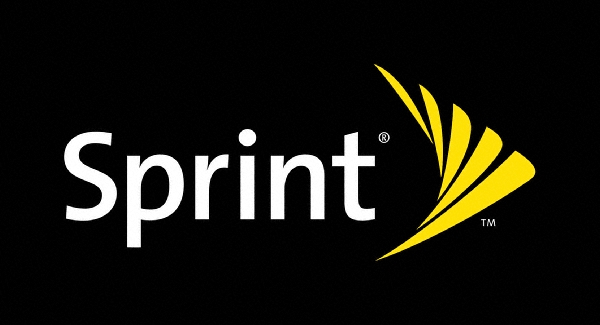
Apple patent lawsuits are hypocritical
I've been fairly critical of Apple's recent patent bullying -- what I call innovation through intimidation/litigation. The Apple Fanclub of bloggers and journalists defend the company's patent and other intellectual property claims as protecting its innovations from copying, particularly by Samsung. But who's copying whom?
As several Betanews commenters recently point out, Apple cofounder, current Chairman and former CEO Steve Jobs admits to the company copying from others. From a mid 1990s interview: "Picasso had a saying, he said: 'Good artists copy, great artists steal'. We have, you know, always, ah, been shameless about stealing great ideas".

Sprint files antitrust lawsuit against AT&T, T-Mobile merger
On the last day of August, the U.S. Department of Justice filed an antitrust lawsuit in the District of Columbia to block the proposed merger of national wireless network operators AT&T and T-Mobile. Tuesday, competing national carrier Sprint Nextel announced it had filed a similar antitrust suit in federal court, saying the $39 billion merger is, in short, illegal.
"Sprint opposes AT&T’s proposed takeover of T-Mobile,” a statement from Susan Z. Haller, vice president of litigation at Sprint, said today. “With today’s legal action, we are continuing that advocacy on behalf of consumers and competition, and expect to contribute our expertise and resources in proving that the proposed transaction is illegal.”

What does Paul Allen need to win his patent lawsuit against Apple, Facebook? Texas
Microsoft cofounder Paul Allen really needs a lesson in how to effectively file and win patent lawsuits. For starters, you don't file them in a Washington State federal court. Other patent plaintiffs seem to get what Allen doesn't: You file in East Texas, in what is affectionately or unaffectionally called -- depending on which side of the verdict you're on -- the "rocket docket." Instead, Allen is back in a Seattle court, refiling a patent infringement case that got tossed about two weeks ago.
US District Court Judge Marsha Pechman vacated the original complaint for being too vague -- "spartan," she wrote -- listing infringers but offering no real examples of infringement. Based on my long experience reporting about technology patent cases, such little details probably wouldn't have stopped Allen in East Texas. The new lawsuit is more explicit, citing examples of real products that allegedly infringe on his patents. The lawsuit names Apple, eBay, Google, Facebook, Netflix, Office Depot, OfficeMax, Staples, Yahoo and YouTube -- but, hey, not Microsoft.

Apple's HTC patent lawsuit is a bluff
Now that buzz about Apple's patent lawsuit against HTC has quieted a bit, I'm ready to pipe in with some contrarian analysis. I agree with other pundits suggesting that the lawsuit is competition by litigation, where Apple hopes to scare off mobile manufacturers from licensing Android. Surely some handset manufacturers will pull back, but they would be foolish to do so. For other existing and potential Android licensees, the lawsuit is a get out of jail free card. Apple's patent case should embolden, not restrain them. There may never be a better time to license Android than now.
Apple claims infringement of 20 patents related to iPhone's user interface. Engadget's March 2nd patent breakdown is a must-read clinical analysis. But there's more to competition by litigation than the actual patents. Lawsuits often aren't so much about what's right but what lawyers think they can prove; often the winner tells the more believable story, even in patent cases. Similarly, much strategy goes into lawsuits -- how they're presented, where they're filed and when. Then, of course, there is whom. In this case, Apple took on HTC and not Google. Now why is that?

Yahoo, Apple, Adobe, others named in Eolas patent lawsuit blitz
It's the same technology that was at the heart of a news-making patent suit against Microsoft: the patent held by Eolas Technologies that defines how a Web browser plug-in can activate functionality. A trio of Eolas patents was upheld under scrutiny in 2005, resulting in a battle in the nation's higher courts over whether Microsoft owes someone else for the right to use what could essentially be described as an "on-switch." It was a battle that brought a premature, if welcome, end to the marketing push for ActiveX.
But the final round of that fight never played out, as Eolas and Microsoft settled for an undisclosed sum, just as Microsoft won the right to argue the invalidity of Eolas' patents anyway. Since those arguments were never made, the 2005 decision upholding their validity stood.

Amazon's Orwell deletion garners a lawsuit
A Michigan teen has filed suit in Seattle against Amazon, maker of the Kindle eReader, for deleting a copy of 1984 on which he was keeping notes for his AP English coursework. Justin Gawronski is suing in order to impress on Amazon the importance of not simply deleting purchased texts -- whatever their copyright or licensing status.
The suit, which seeks class-action status for those affected by the deletion several weeks ago, also names Antoine J. Bruguier, a Kindle owner from Milpitas, California. KamberEdelson is the Chicago-based legal team handling the suit.

TiVo lawsuit explodes into billion-dollar stakes
Yesterday, in a go-for-broke strategy which could very well snatch victory from the jaws of defeat, satellite TV systems manufacturer EchoStar (partner and former owner of Dish Network) filed a motion in US District Court in Marshall, Texas, asking the court to suspend proceedings until the outcome of EchoStar's federal appeal is heard, in the patent infringement case brought against it by DVR manufacturer TiVo. An injunction against EchoStar is being stayed pending that appeal.
That's not a big deal in itself. What is big is EchoStar's assertion that sanctions being sought against it amount to as much as $1 billion -- the first time the proverbial math has alluded to TiVo's potential jackpot. This in addition to the $104 million that the Supreme Court decided EchoStar was liable for, in its refusal to hear EchoStar's first appeal.

Lawsuit against US on IP trade agreement dropped for national security
Opposition to a sweeping trade agreement being negotiated in secret between the United States and at least eleven other countries, plus the European Union, is being voluntarily curtailed after an apparently successful effort by Obama administration officials to prevent parties in a lawsuit against US trade representatives from obtaining any information about that agreement.
It's the Anti-Counterfeiting Trade Agreement, the existence of which is about the only thing the government will barely acknowledge. A document leaked last year to the community journalism site Wikileaks.org indicated that intellectual property protections were on the agenda, and may have been part of the reason why the treaty was not ratified by July 2008 as previously planned.

Lawsuit against Sprint-Clearwire joint venture stands
One year ago, Sprint affiliate iPCS sued Sprint over its WiMAX venture with Clearwire, claiming that Sprint violated exclusivity agreements and willfully withheld the 4G technology from affiliates like iPCS.
The Circuit Court of Cook County, Illinois denied Sprint's motion to dismiss the claims by iPCS, which seek to block Sprint from "obtaining directly or indirectly the benefits of advanced technology without providing that technology and sharing its benefits with its affiliates."

New scares loom over open source license lawsuits
Within the short "tradition" of open source lawsuits, users have typically needed to worry their heads only about breach of contract concerns. But last summer, in a case called Jacobsen v. Katzer, the US Court of Appeals for the Federal Circuit opened up copyright claims as a new route for people looking for financial damages.
Open source developer Robert Jacobsen sued Matthew Katzer and Kamind Associates, producers of commercial software used with model trains, alleging that Katzer and his company violated copyrights around the Java Model Railroad Interface (JMRI), an open source software project licensed under what's called the Artistic License.

Former music industry lawsuit target Seeqpod files for bankruptcy
Music search engine provider SeeqPod filed for Chapter 11 bankruptcy protection in the US Bankruptcy court in the Northern District of California yesterday. Not a large company by any means, it listed a modest $2 million in assets and $1.6 million in debts. Five percent of the company is owned by the Department of Energy's Lawrence Berkley National Laboratory.
SeeqPod is most easily remembered for being sued by Warner Music Group early last year based on the record company's belief that the search engine was built to make money off of advertising in its built-in Web player, even though it did not even advertise.

One way to end a lawsuit: Visto gets Good
What started out as a move by Motorola to become a serious contender in the mobile e-mail services space has ended up playing into the hands of a company with a familiar name among certain attorneys.
Visto -- which held several patents in mobile e-mail, whose litigation against Research in Motion is still pending, and which settled its suit against Microsoft last year -- has agreed to acquire Good Technology from Motorola, which only purchased it in 2006.
$873 million Facebook award could add fuel to CAN-SPAM lawsuits
Now that courts have awarded hundreds of millions of dollars in damages to both Facebook and MySpace, will more civil lawsuits start smacking spammers directly in their wallets?
In a ruling that looks likely to further the use of the federal CAN-SPAM Act in civil lawsuits, MySpace has been awarded $873 million in damages from a Canadian spammer accused of sending sexually explicit messages to members.
Amid a perfect storm, Sirius XM faces a shareholder lawsuit
It's difficult to make the case for conspiracy against the competition when XM and Sirius had no competition prior to their merger. Still, a shareholder plows ahead with his campaign against the merged entity, despite a global crisis.
In recent days, analysts have speculated on various ways that US satellite radio provider Sirius XM can complete the funding of its merger and stay afloat, including issuing more stock and even possibly taking the company private. While all of that remains in the realm of speculation, a Sirius XM shareholder whose name is all too familiar to executives who hail from Sirius, has amended his lawsuit in US District Court in California, in an effort to stop what he describes as a conspiracy to monopolize the satellite radio industry by eliminating existing competition and erecting barriers to new competition.
Apple rivals wield anti-compete lawsuits to fight executive flight
Apple's competitors are trying to enforce non-compete clauses in court as a way of preventing executive talent -- and maybe valuable intellectual property -- from flowing in Apple's direction.
At least two high-level industry executives hired away by Apple lately have beem slapped by ex-employers with charges of breaking non-compete pacts. Mark Papermaster, sued by IBM this month, follows Michael Fenger, who got hauled into court by Motorola in July.
